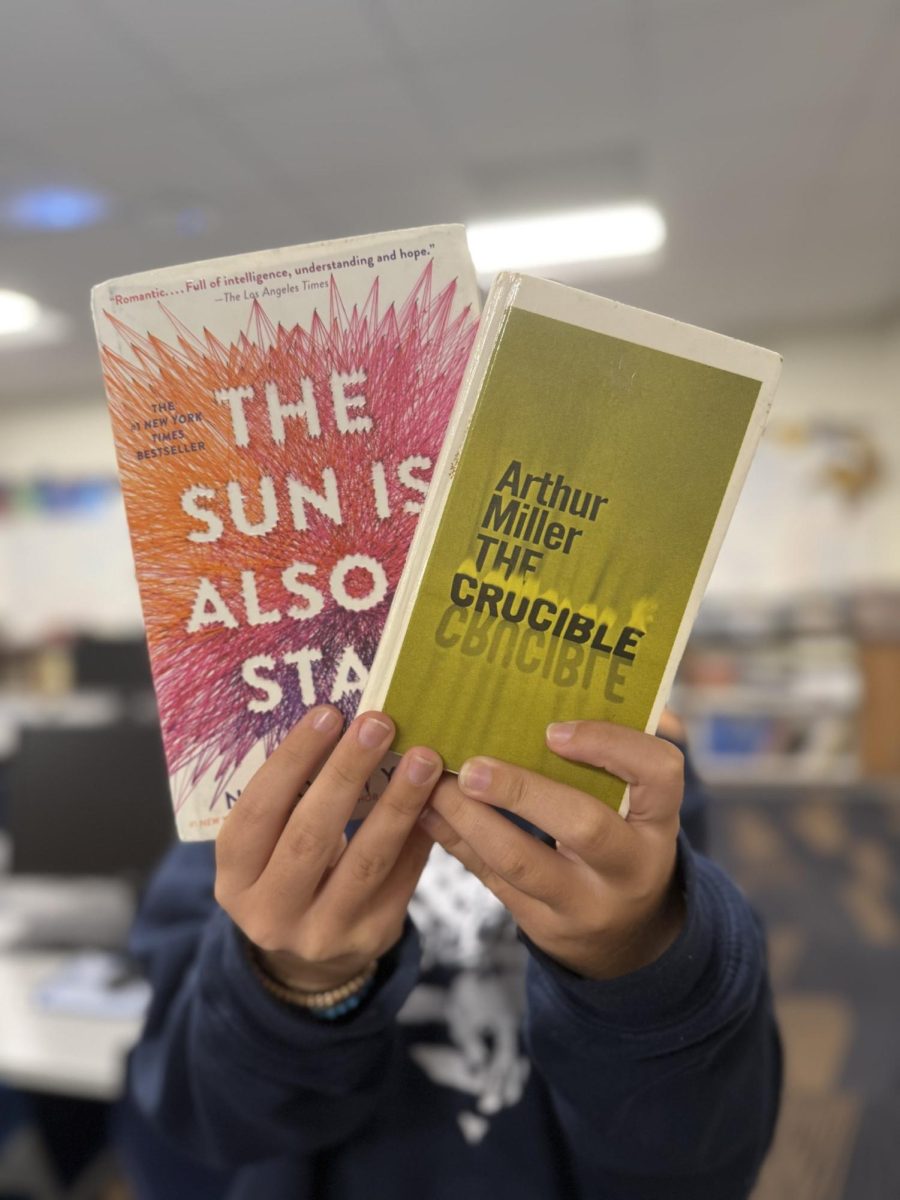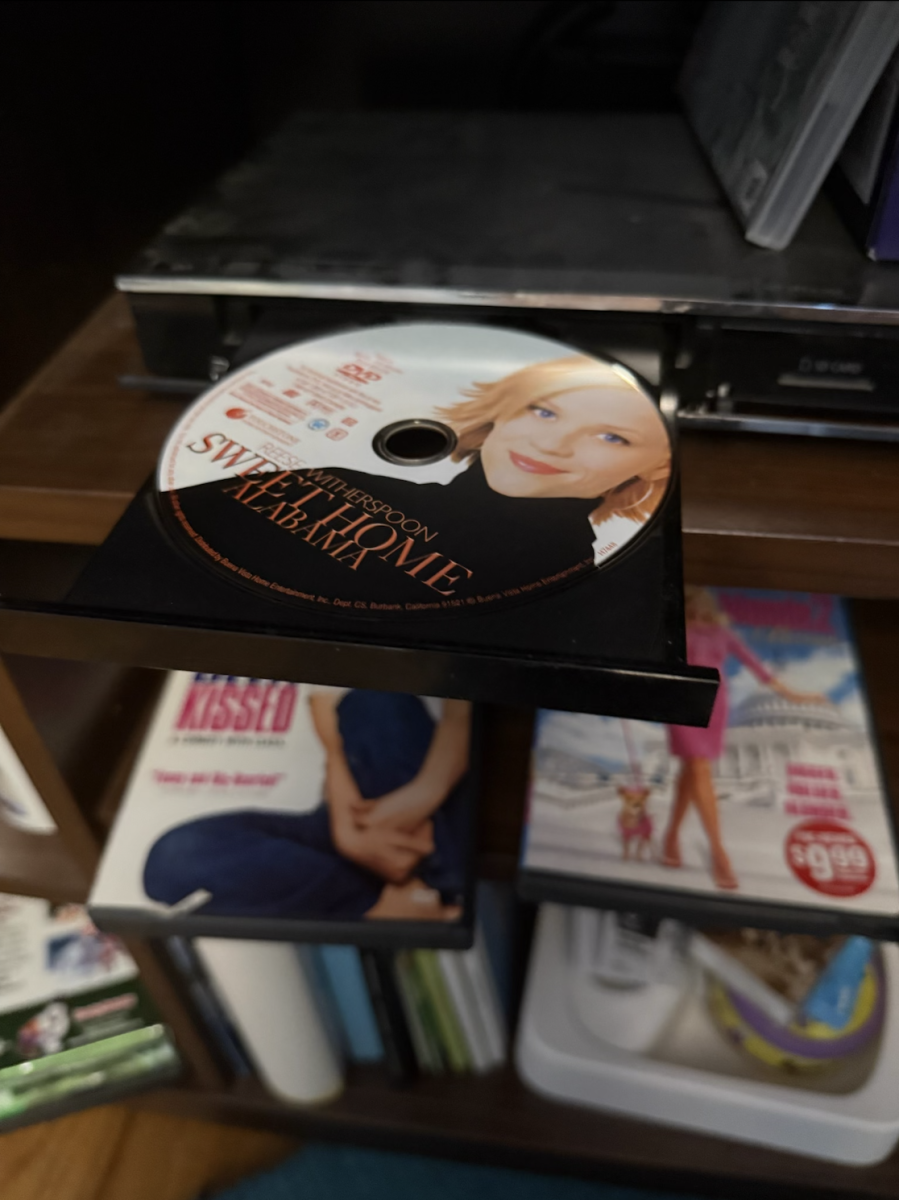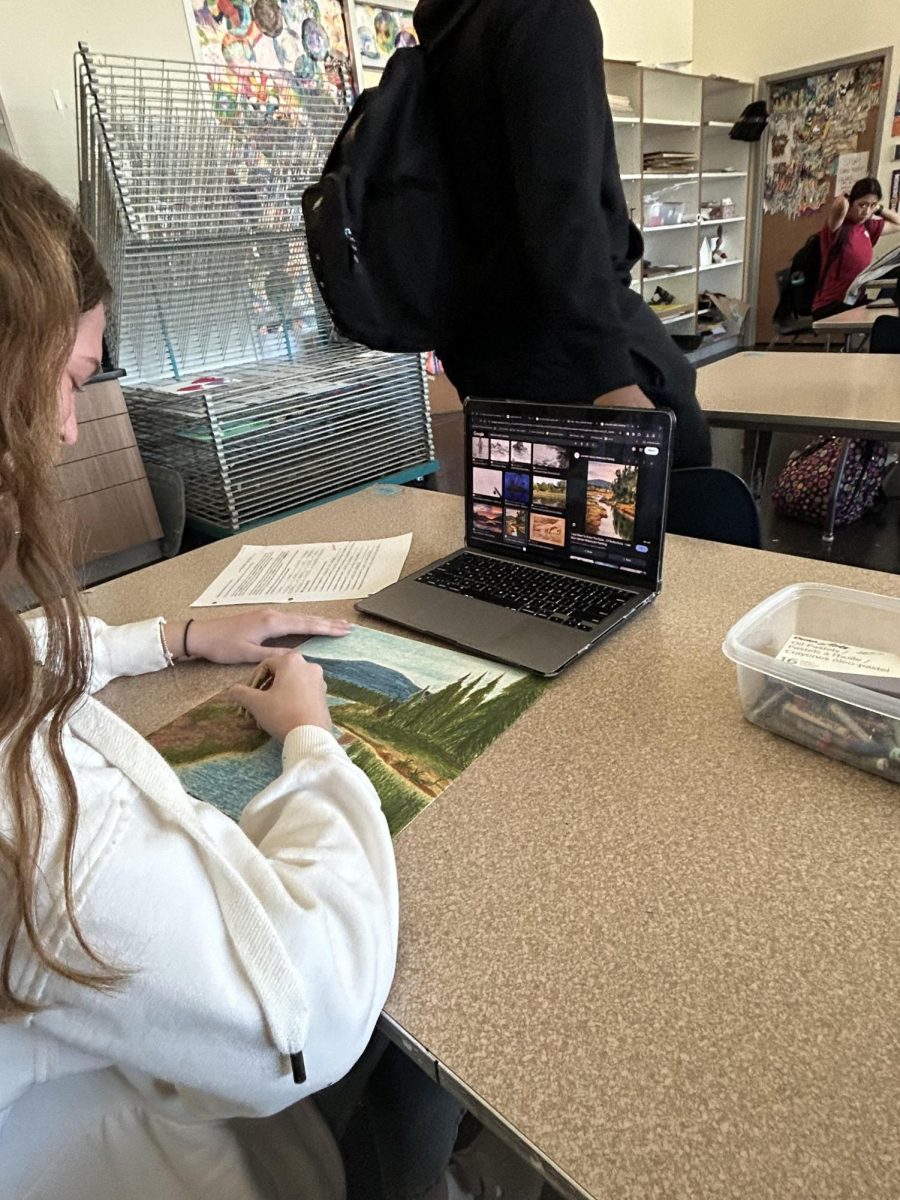Reading is something that many people struggle with in the modern world, especially students who need time to focus on academics or participate in sports. Reading for class, or in general, has recently felt like a chore for many students due to an obsession with scrolling on social media and playing video games. However, reading has many benefits, whether it is in school or at home.
At school, reading and text analysis are required in all English classes. According to irisreading.com, reading helps students improve vocabulary and grammar, as well as teaches them how to read consistently. Analyzing texts can help deepen understanding of different passages and broaden students’ reading habits. For example, someone who reads romance at home may enjoy a historical fiction piece for the first time and want to learn more about different historical concepts.
Taleisha Moore is an English and Advanced Placement Language and Composition teacher at Spartanburg High School and enjoys reading books in her classroom, such as “The Great Gatsby” and “Educated.”
“I do feel that students benefit from reading within a classroom because, for some students, it may be the only way they have access to books or time to read. Students need to be exposed to a variety of texts, and a classroom may be the only place they get exposed to that,” Moore said. “They need the exposure to broaden their vocabulary, experiences and their critical thinking.”
Though some people enjoy it, reading at school can be difficult for many students, even for those who are passionate about reading on their own time. Many people don’t like being told what to read and having to constantly analyze the deeper meanings in passages. They may find the topics boring or may not be interested in the concept of the book. Also, if there is a test or quiz on a certain book being read in class, students may begrudgingly take on this task in order to achieve a good grade.
While Ingrid Schoeni (11) has loved the books she reads in class because of their intriguing storylines and engaging characters, she understands that some students consider reading at school as just another tedious assignment.
“Some students do not take school seriously and do not consider the weight these years in adolescent academics hold on their future, therefore making them annoyed that they have their teacher commanding them to read a 150+ page novel for their grade. In simple terms, they do not understand why they must do it, and it therefore gets on their nerves that they must do something they don’t want to do,” Schoeni said.
Whether it’s because people don’t have time, they can’t find their style of book or they simply don’t want to, reading for personal enjoyment has become a rare quality, especially in the modern world. Some benefits of reading for pleasure include advanced creativity, stress reduction/improvements on emotional well-being and it is a good way to relax without the phone. Reading allows people to feel as though they’re traveling through the world while just sitting on their couch, and it is a sensation that is loved by countless.
However, Kaedon Ooley (11) has strong beliefs about reading for pleasure.
“For the most part, I do not enjoy reading. It takes too long, and you have to think deeply about it. For school, I do not enjoy most of the stories I read. I did enjoy a few, though. I would enjoy reading more if school hadn’t ruined it for me. Many people in my family love reading, especially on my mom’s side. Sometimes I enjoy reading, but for the most part, it feels like a chore,” Ooley said.
Reading can develop a passion for writing as well, and Theodor Geisel, most commonly known as “Dr. Seuss,” was a beloved children’s author and illustrator who is famous for his tongue-twister masterpieces, including “The Cat in the Hat,” “Green Eggs and Ham” and “The Lorax.” As a child, “Dr. Seuss” loved reading and believed everyone should, regardless of age.
One of Geisel’s most famous quotes as “Dr. Seuss” is featured in his book “I Can Read with My Eyes Shut!”
“The more that you read, the more things you will know. The more things that you learn, the more places you’ll go,” Geisel said.









